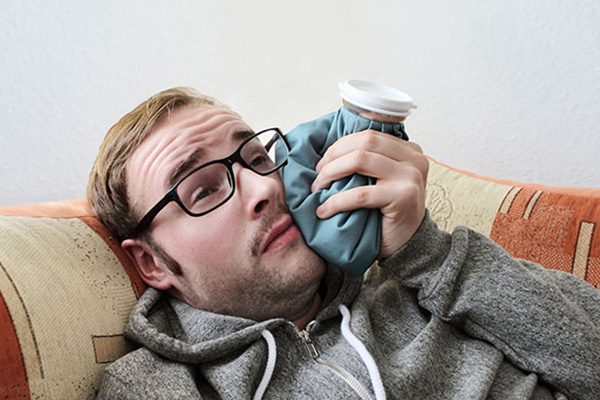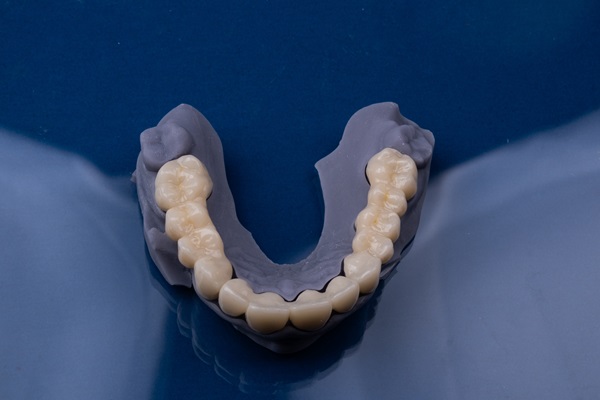What Can Happen After a Chipped Tooth?

A chipped tooth typically occurs during an unexpected moment. As a result, many are not prepared for it and do not know what to do after it occurs. Whether you or someone you know has chipped a tooth and needs advice or you want to know what to expect if it should happen to you, you can find out what you need to know in this guide.
What to expect after a chipped tooth
It is essential to seek prompt treatment after a chipped tooth to prevent more severe oral health concerns from developing. Every person who suffers a chipped tooth has a unique experience, but understanding what a chipped tooth means and what the risks are if left untreated can be helpful.
The definition of a chipped tooth
A chipped tooth is a type of dental trauma in which a part of the tooth is knocked or chipped off the tooth. The level of severity can vary from minor damage that is hard to notice to a more severe chip that extends toward the root of the tooth. The more severe the chip, the higher the risk of more severe oral health complications developing.
The risks of an untreated chipped tooth
Avoiding dental treatments can lead to oral health complications such as:
- Severe and chronic pain
- Gum swelling and bleeding
- Increased risk of an oral infection
- Loose teeth and tooth loss
- Cosmetic concerns
Regardless of the severity of the initial symptoms, it is encouraged to visit the dentist after tooth damage occurs. Otherwise, gum and teeth concerns may develop, and a tooth infection could develop, leading to a need for more invasive and expensive treatment.
How a dentist can treat a chipped tooth
Often, the earlier that a dentist can treat a chipped tooth, the less invasive the treatment is. Initially, the dentist will treat the initial symptoms, such as gum swelling and bleeding, pain and tooth sensitivity.
They can also treat the chip directly on the first visit as well. The most common treatment options for a chipped tooth include a dental veneer, composite bonding and a dental crown. One may be preferable to another, depending on the location and severity of the chip. For example, a minor chip to a front tooth can be repaired more affordably with dental bonding, whereas severe damage to a molar likely requires a dental crown.
Tips for preventing a chipped tooth
Prevention is the ultimate goal. Although accidents sometimes occur, people can reduce their risk of a chipped tooth by wearing a mouthguard while having bruxism, playing sport or being around construction zones and dangerous scenarios that may result in a blow to the face.
Learn more about chipped tooth treatment today
Our dental team has experience treating chipped teeth. If you have a chipped tooth and need prompt treatment to prevent worsening symptoms, then give us a call today to schedule a visit for chipped tooth restoration.
Request an appointment here: https://www.ddsbaik.com or call Dennis Baik, DDS at (408) 676-5321 for an appointment in our San Jose office.
Check out what others are saying about our services on Yelp: Read our Yelp reviews.
Related Posts
When considering full mouth reconstruction to restore oral health, it is important to learn about the process, including the choice to make. When multiple dental issues are present, a full mouth reconstruction is usually the best procedure to correct the problems and restore oral functions and one's appearance. Since there is a lot of information…
Tooth extraction can be a frightening concept, especially for those who have never had a tooth removed before and are not sure what to expect or those who have had a bad experience with extraction in the past. However, there are various things you and your dentist or oral surgeon can do to help mentally…
Dental implant surgery is a popular and long lasting way to replace a missing tooth, but like any surgeries, there is a recovery process that patients must go through. If you are considering a dental implant or had implant surgery done recently, it’s important to understand what to expect during the recovery period.The dental implant…
Having sensitive teeth is a frustrating, painful, yet very common problem. Whether you're dealing with occasional discomfort or constant sensitivity, there are steps you can take to help manage your symptoms and improve your quality of life. Here are some of those steps: Use a toothpaste designed for sensitive teeth: There are toothpaste formulations specifically…


